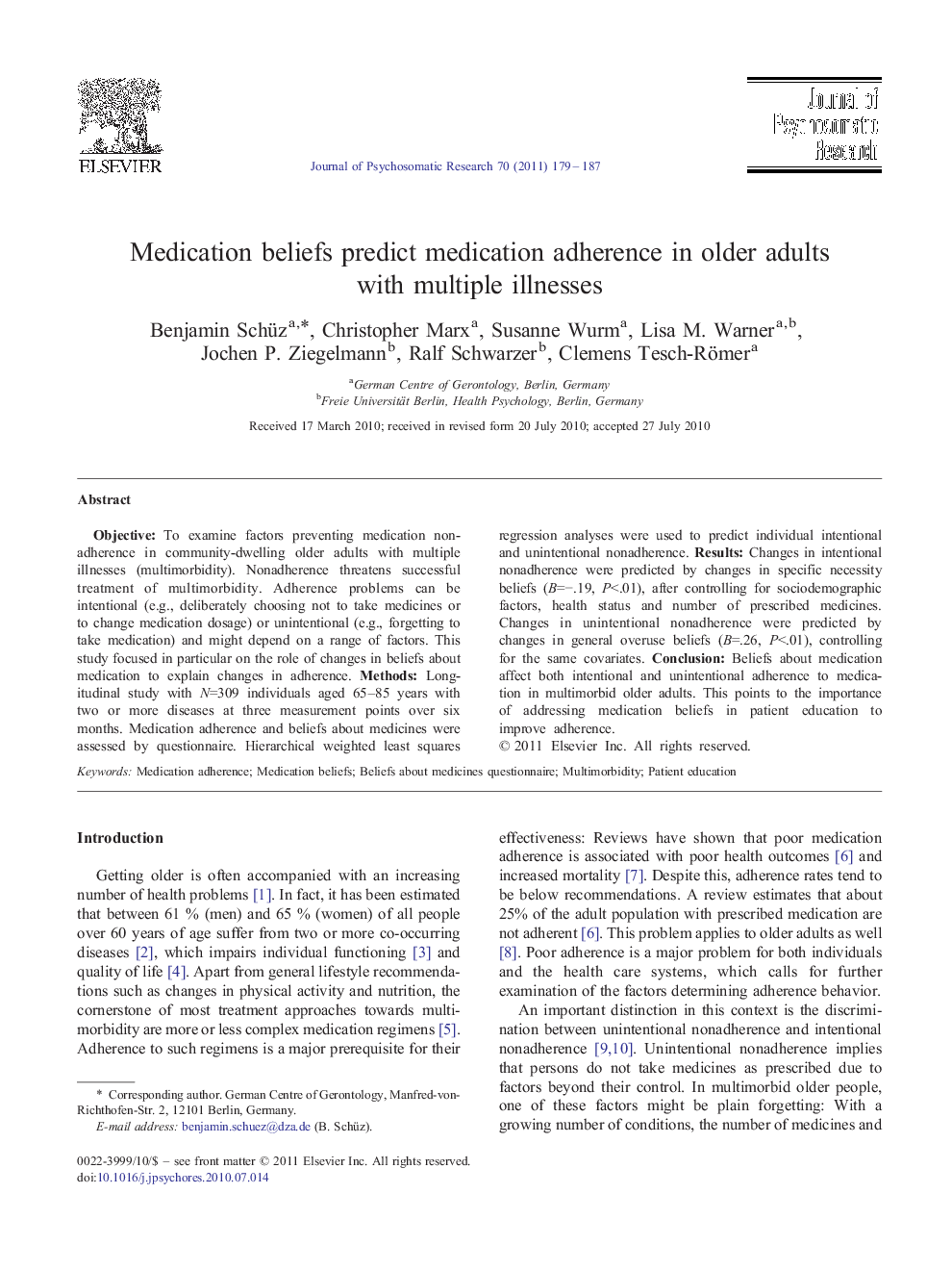| Article ID | Journal | Published Year | Pages | File Type |
|---|---|---|---|---|
| 950090 | Journal of Psychosomatic Research | 2011 | 9 Pages |
ObjectiveTo examine factors preventing medication nonadherence in community-dwelling older adults with multiple illnesses (multimorbidity). Nonadherence threatens successful treatment of multimorbidity. Adherence problems can be intentional (e.g., deliberately choosing not to take medicines or to change medication dosage) or unintentional (e.g., forgetting to take medication) and might depend on a range of factors. This study focused in particular on the role of changes in beliefs about medication to explain changes in adherence.MethodsLongitudinal study with N=309 individuals aged 65–85 years with two or more diseases at three measurement points over six months. Medication adherence and beliefs about medicines were assessed by questionnaire. Hierarchical weighted least squares regression analyses were used to predict individual intentional and unintentional nonadherence.ResultsChanges in intentional nonadherence were predicted by changes in specific necessity beliefs (B=−.19, P<.01), after controlling for sociodemographic factors, health status and number of prescribed medicines. Changes in unintentional nonadherence were predicted by changes in general overuse beliefs (B=.26, P<.01), controlling for the same covariates.ConclusionBeliefs about medication affect both intentional and unintentional adherence to medication in multimorbid older adults. This points to the importance of addressing medication beliefs in patient education to improve adherence.
